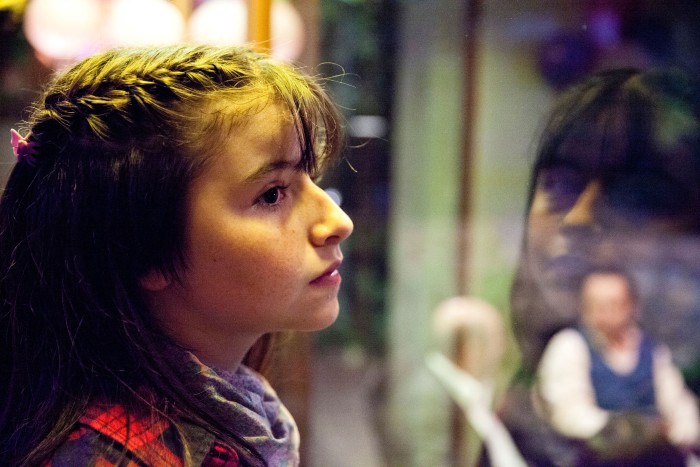Pepa San Martin’s first film, “The Shower,” premiered at the 2011 Berlin Film Festival and won the DAAD Short Film Prize. Her second film, “Gleisdreieck,” will premiere at the Valdivia Film Festival this year. San Martin is currently writing her first narrative feature film, “Odd.”
“Rara” will premiere at the 2016 BFI London Film Festival on October 6.
W&H: Describe the film for us in your own words.
PSM: “Rara” is the story of a normal 13-year-old girl who begins to see the world from a new, weird perspective. It is a story without great fanfare, but with great significance, about the silences of growth, acceptance, and the formation of identity.
W&H: What drew you to this story?
PSM: Prejudices are feelings that trap us and imprison our emotions. This story has a lot of that and [I] felt it was a good excuse to explore these issues.
W&H: What do you want people to think about when they are leaving the theater?
PSM: I would like the audience to connect their own prejudices to the story, and to be able to at least recognize and understand that deep prejudices are inherited and must evolve.
W&H: What was the biggest challenge in making the film?
PSM: Many told me that it was crazy to make my first film with children. I did not listen and do not regret it! It was a great experience and challenged us, but I think we did it!
W&H: How did you get your film funded? Share some insights into how you got the film made.
PSM: This film received funding from the Chilean and Argentine governments, as well as Ibermedia. It took five years of work to achieve funding.
W&H: What does it mean for you to have your film play at LFF?
PSM: This festival has a great reputation. It’s my first film here. Being at this festival and having the opportunity for others to see “Rara” cross borders and connect to the story is one of the reasons I create cinema.
W&H: What is the best and worst advice you’ve received?
PSM: The best advice is a phrase, rather, that makes me think: “Film is a rather peculiar profession, one in which you should eat oysters in order to bring the home the bacon.” And the worst… was so bad that I forgot.
W&H: What advice do you have for other female directors?
PSM: To believe in their ideas. If you feel you have something to say, then be forward about it. And they must realize that the creative process never ends; it only transforms. This work takes a long time, so you must surround yourself with the best team and employees who believe in you and your ideas. Cinema is a collective art and, as such, we need each other.
W&H: Name your favorite woman-directed film and why.
PSM: Lucrecia Martel’s “La Ciénaga” and Alicia Scherson’s “Il Futuro.” I also enjoy Agnès Varda’s and Chantal Akerman’s movies. When I think about it, the movies that come to mind all tell personal stories. I think that is what captivates me. They are all directors whose honesty is transmitted through cinema.
W&H: Have you seen opportunities for women filmmakers increase over the last year due to the increased attention paid to the issue? If someone asked you what you thought needed to be done to get women more opportunities to direct, what would be your answer?
PSM: Society is in a profound transformation. Women are changing. We are releasing ourselves from our own moorings and learning to move in this new era. We’re on a road, no turning back! And I’m convinced that every day there will be more women telling their stories.







